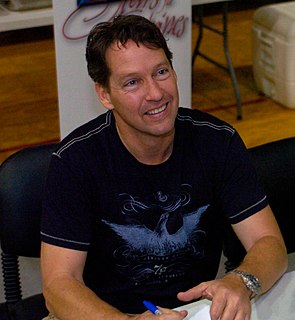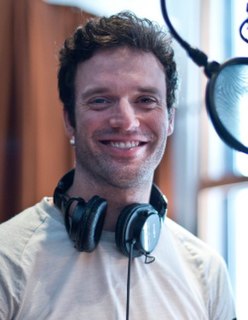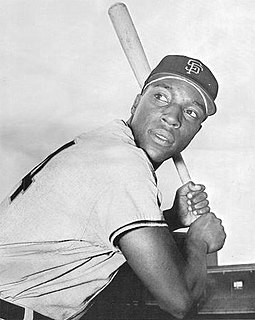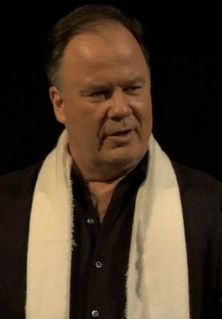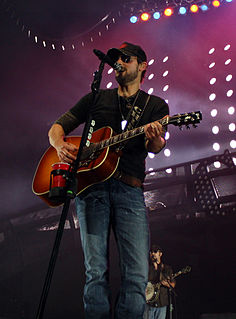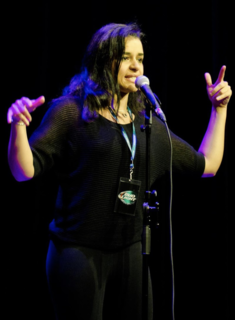A Quote by D. B. Sweeney
I had cooked a lot in restaurants, in Rocky Point and on golf courses on Long Island, and my mother said, 'Be a chef,' and my dad said, 'Be a lawyer.' But instead, I auditioned for N.Y.U.'s Tisch School of the Arts.
Related Quotes
A chef is a chef, a cook is a cook; a lorry driver is a lorry driver and a designer is a designer. I've never heard anyone say that Philippe Starck is a chef. The important thing is dialogue. If I said to Norman Foster that he was a chef he'd say "No", but he might have a dialogue with chefs. People have said to me for many years that I'm not a chef and that I'm an artist instead, but I always say, "No, I'm a chef." I just have dialogues with designers.
When I went to school, my intention was to be a lawyer. When I attended university that was still the clear intention; I was going to be a lawyer. Why? Because it was as far as I could get from my father's antics and world. I thought that the world of the arts probably led people into the kind of behavior I had seen with him and that had resulted in a lot of hard times for my mother and me.
When I was 9, I auditioned for an arts school in Toronto with a few of my friends. The sole reason we auditioned was that we found out you got to miss a couple days of school to do the audition. Without actually wanting to go to arts school, I accidentally got in. My parents encouraged me to try it, and I ended falling in love with performing.
I had talked for years about doing a restaurant with Rocky Dudum, who's been my friend since I first came to San Francisco. Then Rocky's son, Jeff, said he wanted to design it, so he traveled around the country to sports restaurants like Mickey Mantle's and Michael Jordan's, and he came up with a great concept.
I lost my dad back in the fall, and my dad said something to me a long time ago. He said, 'Are you happy with who you are now?' because we just had a real serious talk. And I said, 'Yeah.' He said, 'Then you can't regret what got you to where you are. So whatever you do and whatever mistakes you make, learn from them and grow. And just always treat people with kindness,' which I've tried to do.
Michael [Douglas] is, I think, a great actor. He's made some very interesting pictures. When he was going to college, I was very proud of him, but when he said, 'Dad, I want to be in a play,' he had a bit part. I went to see it and Michael said, 'Dad, how was I?' I said, 'You were terrible.' I thought he would go on to be a lawyer and in three months, he was in another play and I went and, I must admit, he was great. I think he has been good in everything he's done.
I started on the clarinet. I was going to a music school - my mother took me - and the guy said, 'What do you want to play?' I said the drums, and my mother said, 'No, you don't. You don't want to play the drums.' So I said, 'Maybe the trumpet would be cool.' And my mother said, 'I don't think so.' And then the clarinet was handed to me.
After the abrupt death of my mother, Jane, on Sept. 5, 1991, of a disease called amyloidosis, my dad took up golf at 57. He and my mother had always played tennis - a couples' game of mixed doubles and tennis bracelets and Love-Love. But in mourning, Dad turned Job-like to golf, a game of frustration and golf widows and solitary hours on the range.
I went to my dad when I was 17 and said, 'I want to be a country music star.' Which every dad loves to hear. And he said, 'I want you to go to college.' So we had a discussion. And I'm pretty stubborn. I'm a lot like him. And he said, 'If you go to college and graduate, I'll pay your first six months of rent in Nashville.' So he bribed me.
My dad took me to a high school basketball game and this very, very famous coach in Michigan, by the name of Lofton Greene - he was a guy that my dad was familiar with. He was from our hometown. And I watched the game and I said I didn't see this guy doing a lot of coaching. And my dad told me, well, it's just like a teacher - which he was - he said if you do a good job teaching during the week, when they take the test on Friday, that's not the time you have to do a lot of demonstrative things.
